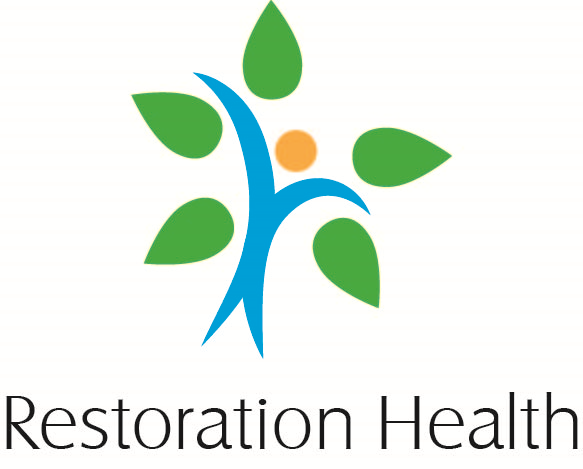Tending your Garden of Health
/I love the metaphor of comparing your health to a garden. Your health is exactly like a garden; you have to sow the seeds, tend to them lovingly, water and weed your garden, and nurture the soil. When something happens to weaken or diminish the garden (ie: a hail storm, frost, drought, etc.), you have to work extra hard to nurture it back to abundance. Your physical health is no different.
Imagine you have a beautiful, healthy tree that you love. One day, in the middle of summer, you notice the bark is starting to peel away from the trunk and the leaves are turning brown and falling off. Immediately, you call an expert who specializes in the health of trees. After examining the tree, the expert recommends painting the trunk brown, painting the remaining leaves green, and stapling additional fake leaves onto the branches to fill it out, giving an appearance of health. Do we not agree that is a ridiculous and preposterous approach? If you want a healthy tree you can’t just cover up the problem; we need to dig deeper into the soil and look at the root system to understand why this tree is failing. And yet, with our own health, we seem to be quite willing to paint the trunk and staple on green leaves in an attempt to “look healthy” without digging deeper to understand the underlying root cause of our unwellness.
Our traditional approach to health and wellness treats symptoms (ie: painting leaves), but does not address root causes. In our current medical system we have even gone beyond just painting the leaves and we have started cutting off whole branches and replacing them with artificial ones. Sometimes we don’t even replace them at all but just hope that the tree can somehow mend itself despite the missing parts. Can this approach really produce a healthy tree or a healthy body?
In our bodies, the root system is our gut – otherwise known as the digestive tract. Before chronic illness, there is inflammation, and before inflammation there is gut dysfunction. The truth is, most illnesses today, (including conditions that are being diagnosed in epidemic proportions) can be traced back to an injured, irritated, and unhealthy gut. Over 2000 years ago Hippocrates said: “all disease begins in the gut.” This still holds true today, but sadly, nobody seems interested in building health from the inside out – we all want to paint our leaves.
Signs of an unhealthy gut include:
· Acid reflux
· Excess phlegm and mucous
· Gas/bloating
· Skin disorders
· Recurring infections
· Frequents colds/flu
· Allergies
· Mood swings
· Bad breath
· Yeast infections
· Fatigue
· Aches and pains
· Premature aging
· Loose stools or constipation
These symptoms can often lead to more chronic and serious conditions. In our traditional medical approach, however, they are often attributed to the unavoidable wear and tear of daily life. They are not recognized as signs of an unhealthy gut or as the underlying cause of illness. The good news is that all of these symptoms can be reversed and resolved through some loving attention to the roots and soil of your garden.
The gut (made up of several organs) is referred to as your “second brain” and it performs a myriad of essential functions that affect every single cell in the body, from the marrow in your bones to the hair and skin on the surface. This is why gut dysfunction can manifest in the unlikeliest of body parts. For example, when you notice a rash on your skin you will likely address it with a topical treatment instead of recognizing it as a sign of gut dysfunction. We are all walking around with damaged guts and, to varying degrees, suffering from the consequences. But, when we repair the gut, major and minor symptoms start to diminish and we can discover the meaning of true health.
Repairing the gut starts with your choice of food (essentially the fertilizer for your garden). The body requires WHOLE foods; live and good quality foods; foods that are as close to nature as possible. Refined, processed, packaged, and fast food does not nourish our garden and will ultimately contribute to poor gut function. Increasing your fiber intake is a boon to gut health; think fresh fruits and veggies, nuts, seeds, legumes, beans and whole grains. Another boost for our inner garden is probiotics; these are found in fermented foods like kimchi, raw sauerkraut, water kefir, miso and plain organic yogurt. Good intestinal flora is a key contributor to detoxification and keeping our “roots” healthy.
Good hydration is another must for a healthy gut; 2 litres/day of clean water away from meals will enhance digestion and support elimination. Stress management and relaxation are also critical for optimal digestion; eating mindfully, meditation, and deep breathing are the equivalent of lovingly weeding and watering your inner garden. Regular baths in Epsom salts will aid relaxation, promote detoxification, and support gut health. Avoiding alcohol, rancid oils, trans & hydrogenated fats, preservatives, additives, and artificial sweeteners will also help nurture your roots and make your gut happy. And, finally, as simple as it sounds, good chewing is critical to your overall digestive health. Digestion starts in the mouth and good chewing stimulates a cascade of events that are critical to proper digestion, absorption, elimination, and optimal gut function.
So, remember to tend to your inner digestive garden with love and nurture, and it will reward you with vitality and health!

